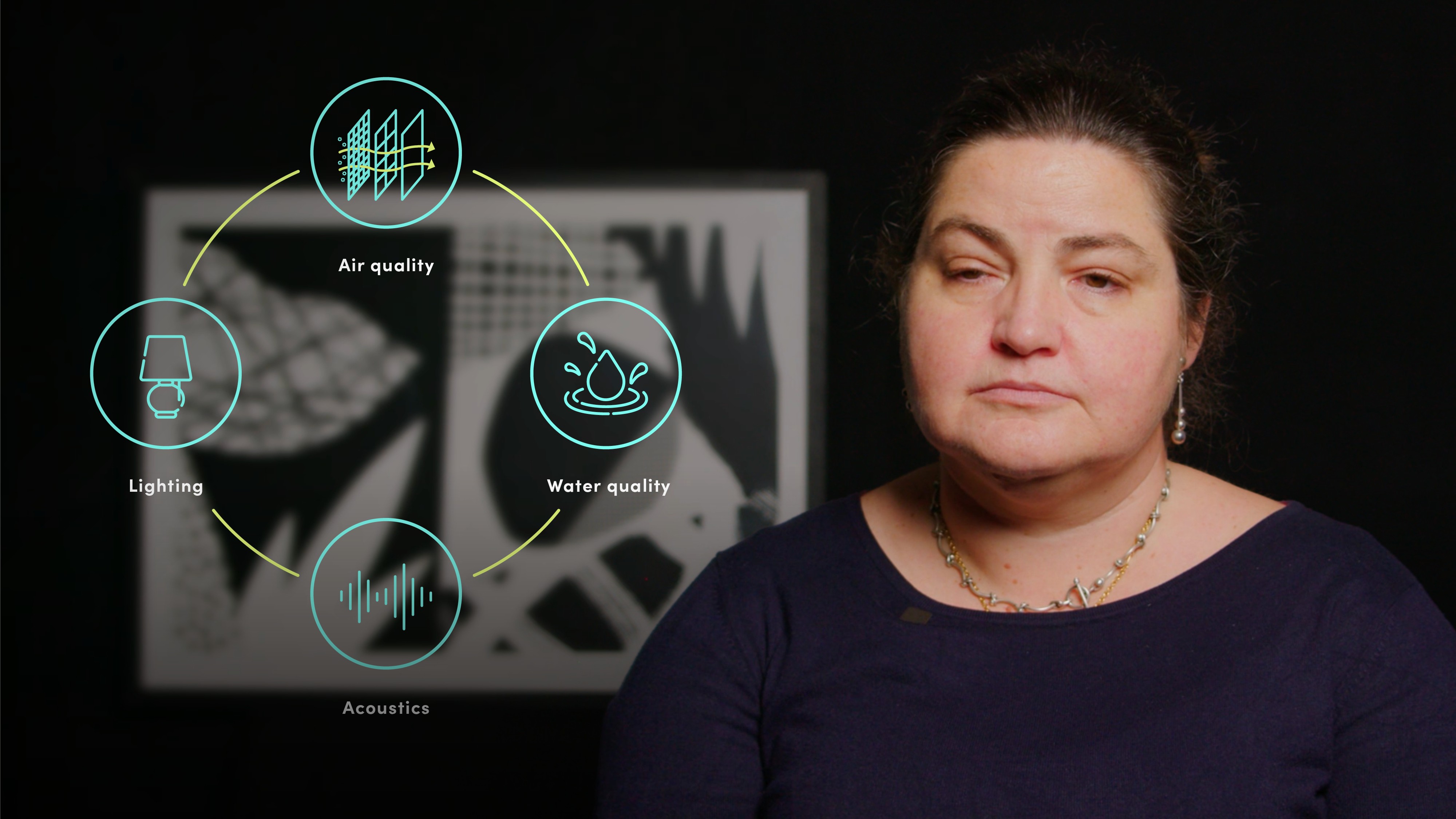
Health and Well-being Certification Schemes

Philippa Gill
20 years: Real estate investment
In this video, Philippa delves deeper into the WELL and Fitwel as well as more specific certifications. She also covers the main differences between the schemes in general and looks at the certification process and the differences in requirements.
In this video, Philippa delves deeper into the WELL and Fitwel as well as more specific certifications. She also covers the main differences between the schemes in general and looks at the certification process and the differences in requirements.

Health and Well-being Certification Schemes
8 mins 49 secs
Key learning objectives:
Understand the WELL Building Standard and the Fitwell certification scheme
Outline the similarities and differences between the two schemes
Outline more specific frameworks relating to the human health and well-being segment of the real estate sector
Overview:
The WELL Building Standard and Fitwel are certification schemes for buildings that aim to promote healthy and sustainable design, construction and operation practices, with both focusing on the human factors inherent in the built environment. Both schemes share key principles, such as clean air and water, healthy food options, physical activity, comfortable spaces, and biophilia. Although they originated in the US, they now have global adoption. Notable differences include WELL's Performance Verification assessment and Fitwel's focus on public health outcomes. Within the human health and well-being segment of the real estate sector, there are more focused frameworks with a focus on specific elements.
What are the WELL Building Standard and Fitwell Certification schemes?
The WELL Building Standard and Fitwel are certification schemes promoting healthy, sustainable design, construction, and operation practices in buildings. Developed by the International WELL Building Institute and the U.S. CDC/GSA respectively, both programs focus on human factors in the built environment, unlike broader schemes like LEED and BREEAM. They provide frameworks for evaluating and rating buildings on health and well-being performance.
Key principles include access to clean air and water, healthy food options, opportunities for physical activity, comfortable spaces supporting well-being, and enhancing mental health through biophilic design.
What are the similarities and differences between the two schemes?
Similarities:
- Focus: Both WELL and Fitwel concentrate on human health and well-being in buildings.
- Rating systems: Both use point-based systems; Fitwel has a 3-star rating with no pre-conditions, while WELL offers Silver, Gold, and Platinum ratings with pre-conditions.
- Custom performance scorecards: Both provide tailored scorecards for various project types and stages.
- Adoption: Both originated in the US and are now globally recognised.
Differences:
- WELL requires Performance Verification assessment and more detailed technical assessments, leading to higher third-party costs.
- Fitwel is managed by the CDC, emphasising research and evidence-based public health outcomes.
What other frameworks focus more specifically on human health and well-being within the real estate sector?
Frameworks focusing specifically on human health and well-being within the real estate sector often address air quality, as it significantly impacts human health.
The RESET Standard, originating in Asia, measures Internal Air Quality (IAQ) and has been adopted primarily in Asia, with some certified buildings in Europe and the US.
Other air quality schemes include AirRated in the UK and emerging schemes like RESET's focus on materials addressing VOCs. Indoor air quality is expected to become a regulatory issue in developed real estate markets.

Philippa Gill
There are no available Videos from "Philippa Gill"

